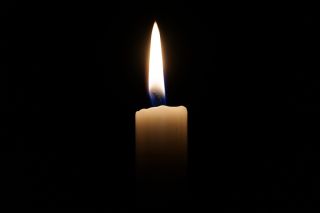Child Development
Are You a “Because” Person?
Making excuses for one’s life is a sure recipe for limitation and unhappiness.
Posted April 4, 2023 Reviewed by Abigail Fagan
Key points
- “Because” is often used as a cop out to avoid taking responsibility.
- We are made to be our fullest selves, and anything less can lead to limitation and unhappiness.
- Pay attention to where you say “because” in your life and how that dims your inner light.

As with so many of the ideas for this blog, today’s came from a client. She was talking about needing to change her set of friends. “I have too many ‘because’ people in my life,” she told me. “What’s a ‘because person’?” I asked. “You know,” she answered, “those people who are always telling you why they didn’t or can’t do something — because someone wouldn’t let me, because of my childhood, because of my husband, because, because, because….”
I smiled, as I know this particular client to be constantly battling to overcome the legacy of a horrific childhood. She is the antithesis of a “because person” and I think a lot of people can learn from her example. She constantly challenges herself to overcome her mental templates of what’s possible, to see herself through a larger lens, to push herself beyond where her childhood told her she’s capable of going.
“Because” is a seductive word, and let’s face it, we all use it in a variety of situations. “I can’t write that book because….” “I can’t apply for that promotion because….” “I can’t put myself forward for that opportunity because…..”. Well, because why, exactly?
Marianne Williamson has a wonderful quote I think we should all try harder to live by:
“Our deepest fear is not that we are inadequate. Our deepest fear is that we are powerful beyond measure. It is our light, not our darkness that most frightens us. We ask ourselves, 'Who am I to be brilliant, gorgeous, talented, fabulous?' Actually, who are you not to be? You are a child of God. Your playing small does not serve the world. There is nothing enlightened about shrinking so that other people won't feel insecure around you. We are all meant to shine, as children do. We were born to make manifest the glory of God that is within us. It's not just in some of us; it's in everyone. And as we let our own light shine, we unconsciously give other people permission to do the same. As we are liberated from our own fear, our presence automatically liberates others.”1
This is from a woman who ran to be President of the United States, so you can’t say she’s not walking her talk. I found it distressing to witness how she was dismissed so casually by the political pundits as being “too New Age” to be taken seriously. As if the venality and moral bankruptcy of our political leaders are preferred alternatives to someone conscious, to someone who believes in the inherent goodness in us all.
For those of us still waiting to be discovered, still hoping others will notice the spark we feel but hesitate to put forward, I say the following: For 99% of us, the world will not beat a path to our door. You have to show yourself if you want to be seen. Emily Dickinson, considered one of the most important poets in America, was almost completely unknown in her life as nearly all of her poems were sequestered in her desk and not found until after she died. At least her poems were eventually found and her light still shines today. How many similar stories are there where the essence of a person remains hidden, even after their death?
I do not mean here to confuse fame or fortune with showing one’s light. There is usually an inverse relationship between social media visibility and showing one’s essence. Generating clicks seldom correlates with true vulnerability, with a true expression of one’s soul. We are all born to serve in some fashion, and sharing our inner essence in the way we are called to is the ultimate service we can perform, whether or not it brings us notoriety.
So I ask you: What light are you hiding under a bushel? Why are you hiding it? Who benefits from you not being your fullest self? And how does the word “because” dim the light within you that is meant to shine?
References
1. Marianne Williamson, A Return to Love: Reflections on the Principles of "A Course in Miracles"


